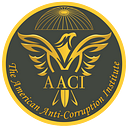Foreign Corrupt Practice Act (FCPA)
Congress enacted the U.S. Foreign Corrupt Practices Act (FCPA) in 1977 in response to revelations of widespread bribery of foreign officials by U.S. companies. The FCPA was intended to halt those corrupt practices, create a level playing field for honest businesses, and restore public confidence in the integrity of the marketplace.
The primary driver of enacting the FCPA was the breadth and extent of bribery payments made by U.S. companies to foreign officials. The FCPA is currently the major anti-corruption legislation in the United States.
The law applies to three categories of persons and entities:
- “Issuers” and their officers, directors, employees, agents, and shareholders; under the FCPA an issuer is any company with a class of securities listed on a national securities exchange in the United States, or any company with a class of securities quoted in the over-the-counter market in the United States and required to file periodic reports with SEC. A company thus need not be a U.S. company to be an issuer. Foreign companies with American Depository Receipts that are listed on a U.S. exchange are also issuers. Officers, directors, employees, agents, or stockholders acting on behalf of an issuer (whether U.S. or foreign nationals), and any co-conspirators, also can be prosecuted under the FCPA.
- “Domestic concerns” and their officers, directors, employees, agents, and shareholders; a domestic concern is any individual who is a citizen, national, or resident of the United States, or any corporation, partnership, association, joint-stock company, business trust, unincorporated organization, or sole proprietorship that is organized under the laws of the United States or its states, territories, possessions, or commonwealths or that has its principal place of business in the United States. Officers, directors, employees, agents, or stockholdersacting on behalf of a domestic concern, including foreign nationals or companies, are also covered.
- Certain persons and entities, other than issuers and domestic concerns, acting while in the territory of the United States. Since 1998, the FCPA’s anti-bribery provisions have applied to foreign persons and foreign non-issuer entities that, either directly or through an agent, engage in any act in furtherance of a corrupt payment (or an offer, promise, or authorization to pay) while in the territory of the United States. Also, officers, directors, employees, agents, or stockholders acting on behalf of such persons or entities may be subject to the FCPA’s anti-bribery prohibitions.
The FCPA consists of two classes of provisions:
- The anti-bribery provisions, and
- The accounting provisions.
- Internal control
- Books and records
This is a excerpt of the CACM review content that will be tested in the CACM Exam when launched in early 2018.
